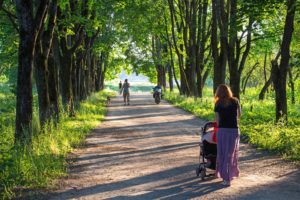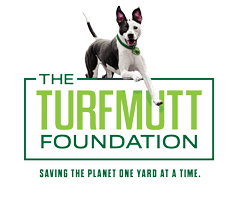Latest Posts
- Have a purpose when backyardingAugust 5 2021
- Study: Time outside alters our microbiomeAugust 4 2021
- Happy National Mutt Day from Mo-MoJuly 27 2021
- New home? Avoid these common mistakes in your yard.July 26 2021
- Infographic: Plan a backyard staycation this summerJuly 22 2021
Categories
Archive
December 23rd
Resolve to be an “outsider” in 2020

The TurfMutt Foundation and its adorable new spokesdog, Mulligan, have a suggestion as you’re planning your New Year’s resolutions. Set an intention to spend more time learning about, taking care of, and spending time in your living landscapes (i.e. being an outsider) in 2020.
There are many good reasons to put this promise to yourself at the top of your list. The green spaces in your own back yard and in our community parks and school yards can help combat climate change. By becoming a steward of the living landscapes around you, you can have a positive impact on our environment.
Not only do living landscapes benefit the planet, they are also good for our health and well-being. Being an outsider by exploring and appreciating nature – starting in our own backyards and community green spaces – reduces stress, improves memory, boosts heart health and offers a host of other benefits for our minds and bodies. Additionally, green space is where people reconnect with nature and one another, making memories and creating a healthier, happier life.
Our family yards, parks and other green spaces are also wildlife habitats, environmental superheroes, recreational spaces and outdoor living areas. A balanced living landscape, including the grass, trees, shrubs and flowering plants in our family yards and community green spaces, benefit people, pets, wildlife and the planet by:
- Improving overall health and well-being,
- Reducing stress and combating nature deficit disorder,
- Creating recreational space,
- Benefitting the environment by capturing and filtering rainwater, producing oxygen, absorbing carbon and more,
- Providing valuable wildlife habitat,
- Supporting pollinators,
- Boosting curb appeal,
- Improving property values, and
- Reducing crime.
On final note as you’re beginning to dream about your spring plantings. Putting the right plant in the right place is key to healthy living landscapes. More than knowing whether your plants will thrive in sun or shade, you must also factor in your micro-climate zone, family needs and lifestyle.
For more information on the benefits of being an outsider and tips on how to do it well, go to SaveLivingLandscapes.com.





